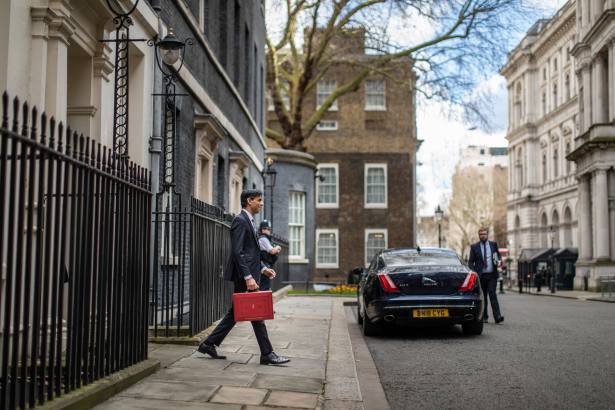
Even without the ravaging uncertainty of the Coronavirus, the challenge laid down to chancellor Rishi Sunak was vast.
The government decided to frame fiscal policy within two priorities.
The first was that the day to day government budget would be balanced within three years, the second that billions would be spent on infrastructure and other spending in the North of England, and that a target rate of growth would be above 2 per cent in normal times.
Mr Sunak’s response was to announce a package which increased the total of government spending by £76bn over the next four years, with just £7bn a year of extra tax revenue to pay for it.
The gap is being filled by increasing government borrowing.
Coronavirus impact
The interest rate at which the UK government can borrow has also tumbled as part of the ramifications of the wider crisis, making it easier to fund the borrowing. Right now (March 16) the UK government can borrow for 10 years at an interest rate of 0.37 per cent.
The economics think tank, the Institute for Fiscal Studies (IFS) said the government’s strategy contains serious risks, because if there is a larger shock to the economy than is forecast, such as the Coronavirus crisis having a longer-term impact than is presently expected, or the UK’s exit from the EU transition agreement proves more problematic than the government’s current base case scenario that the UK exits with a deal, then taxes would need to rise, or spending be cut.
Borrowing could also rise in that scenario, but the unknown question would be whether the interest rate at which the government borrows would rise significantly in that scenario.
Paul Johnson, director of the IFS said: “If it turns out that the short term disruption caused by Coronavirus is just that – short term – then all is well.
"Any significant longer term effect, though, and a smaller economy will mean the tax and spending plans set out [in the Budget] will lead to an even bigger deficit than currently planned in the first few years of this decade.”
He noted that many of the spending pledges in the budget related to the first two years of this parliament, and at the end of that time, if growth has not picked up by then, either spending would have to be cut, borrowing increased further or taxes raised.
The second risk highlighted by the IFS is that while the massive investment programme outlined by the government is that while it might be expected to generate additional economic growth, this won’t happen if the extra money is spent unwisely.
Growth outlook
David Page, head of Macro research at Axa Investment Managers said the increase in public spending announced by Mr Sunak is the largest since the early 2000s.






